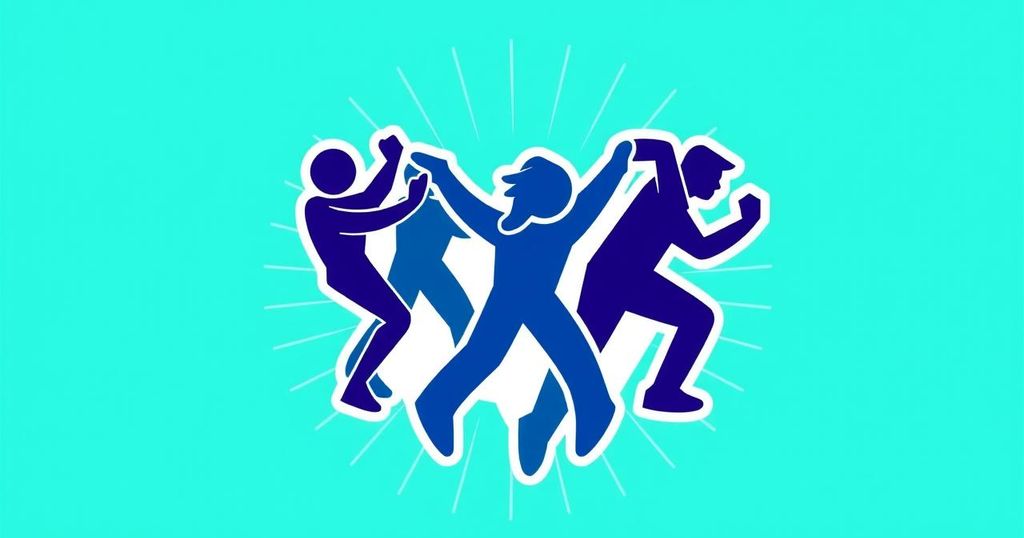Politics
ASIA, CHINA, CNOSF, COSTA NAVARINO, DAVID LAPPARTIENT, DEMOCRACY, ELECTION, ELECTIONS, EUROPE, GREECE, INTERNATIONAL CYCLING UNION, INTERNATIONAL OLYMPIC COMMITTEE, IONIAN SEA, JUAN ANTONIO SAMARANCH JR, NORTH AMERICA, OLYMPIC GAMES, SEA, SEBASTIAN COE, THOMAS BACH, UNITED STATES, WORLD ATHLETICS, XI, XINHUA
Marcus Li
0 Comments
IOC Presidential Election Approaches with Heightened Uncertainty
The IOC presidential election is nearing its conclusion, with no clear frontrunner and candidates preparing for a decisive vote. David Lappartient and Juan Antonio Samaranch Jr. highlight the unpredictability of the election, emphasizing the importance of each member’s decision. Key challenges await the new president, including financial sustainability and political neutrality. This election is expected to be a significant milestone for the Olympic Movement.
The International Olympic Committee (IOC) is on the brink of electing its 10th president, with no clear front-runner evident among the candidates. IOC members are preparing to vote in an election that, given the current uncertainty, is being regarded as one of the most unpredictable in recent years. The election is unfolding amidst the picturesque surroundings of the Ionian Sea, marking the final session presided over by Thomas Bach.
As the candidates prepare for the decisive round, the discussions among IOC members highlight the significance of this electoral decision for the Olympic Movement’s future. Li Lingwei, a member of the IOC Executive Board, reported on the intensity of the election, noting that “everyone is carefully evaluating their choices. Each candidate has their own strength.”
Among the seven candidates, David Lappartient, the president of the International Cycling Union, acknowledges that the election could extend into multiple voting rounds. He compared the election process to a cycling competition, asserting that it remains unpredictable, with potential multiple rounds necessary before a victor is determined.
In contrast, another candidate, Juan Antonio Samaranch Jr., emphasized the discreet nature of the voting process, underlining that the outcome will not be revealed until the ballots are cast. He committed to working diligently until the very last moment before the election.
The election is structured to ensure a thorough decision-making process. If no candidate secures an outright majority in the initial round, the candidate with the fewest votes will be eliminated, leading to subsequent voting rounds until one candidate prevails.
Sebastian Coe, the president of World Athletics, has refrained from media commentary as he prepares for the election, while Kirsty Coventry, the sole female candidate and a prominent African athlete, has remained similarly reserved. Other candidates, including Prince Feisal bin Hussein, also shared their thoughts, with the latter expressing confidence in his chances but recognizing the unpredictable nature of the vote.
Challenges lie ahead for the future IOC president, including maintaining political neutrality, ensuring financial sustainability, promoting gender equity, and addressing issues brought about by digital change and climate impact on future games. Martin Fourcade, an IOC member from France, underscored the need for strong leadership and a vision that encapsulates various interests.
As the election approaches, discussions are ongoing among candidates and members, with each candidate strategizing to sway undecided voters. This election is anticipated to be a historic moment for the Olympic Movement, irrespective of the outcome, as noted by Li Lingwei.
The upcoming presidential election of the International Olympic Committee is marked by significant uncertainty, with no candidate positioned as a clear favorite. As IOC members weigh their options, the election’s outcome will have profound implications for the Olympic Movement’s future. Candidates are working tirelessly to secure support, addressing key issues such as gender equity and financial sustainability. Regardless of who emerges victorious, the principles of fairness and leadership will be crucial in the face of imminent global challenges.
Original Source: english.news.cn




Post Comment